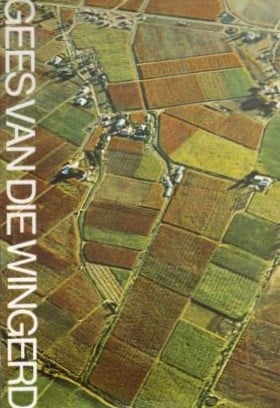Melvyn Minnaar: Bacchus, Barthes and the Bible
By Melvyn Minnaar, 3 November 2021
It was a Bacchus-inspired moment. Revival of spirit was in the air, spring-like in our garden of delights, and the wine had been poured around the cheerful table of friends. The heady subject: “What is wine today?”
The question had oozed out of discussions about prices, prizes, preferences and philosophies about why we love wine. Why we constantly talk about it, whether in purple prose as judges, or simply communicating with one another the enjoyment experience. We are drinkers and thinkers – to quote a rabble-rousing mate of student days yonks ago.

It was the same pal who treated me with a birthday gift of Gees van die Wingerd (Spirit of the Vine) compiled by our literary poet professor at the time, D.J.Opperman. It was published by Human & Rousseau for the KWV’s 50th anniversary in 1968 in the grandest of celebratory manners with essays and creative writ.
A beautiful book – still – it carries its contemporary gravitas to this day in large format, bound in Academy linen and printed on the finest R400 matt paper from Cartiere Burgo (Milano).
That ‘Spirit’ part can be said to be our lifelong motto. (Afrikaans has a lovely expression: “om die gees te vang”.)
Being drinkers and thinkers, the garden question was an entertaining, not-quite sobering challenge. Of course, with Bacchus lingering at the table, the question sashayed just beyond the great existential worry amidst past and present covid chaos right now: “What is life today?”
To answer, we turned to the great French investigator of language, signs and meaning, Roland Barthes (1915-1980). A great ghost guest, his contemplation of wine came to pass.
In his 1952 book of essays about cultural phenomena, Mythologies (lovingly translated to English by Annette Lavers in the 1970s), he pondered ‘Wine and Milk’ and muses how wine was a “totem-drink” of the French. (Playfully, he allocated ‘milk’ to the Dutch, but bragged about France’s 360 types of cheese! Tea belonged to the English. It is indeed a fun, amusing read.)
His argument is that wine is loaded with meaning, deeply identified with those who produce and consume it. “Like all resilient totems,” he wrote, “wine supports a varied mythology which does not trouble with contradictions.” (The latter was a useful observation in the current state of the South African wine industry, but that’s just a thought. Barthes also makes a remarkably apt mention of land appropriation.)
When Barthes calls out wine as a social equaliser and “its philosophical power to transmute”, he also extols its “apparently plastic powers: it can serve as an alibi to dream as well as reality, it depends on the users of the myth”
The fun part of Barthes’ essay is the subtext of alcohol, of course – something we were picking up on that day the big question was (again) asked. Naturally, his semiotic mind takes in the symbolism of biblical wine and the colour of blood.

In one of the most enjoyable essays in the Gees van die Wingerd (on the garden table that fine spring day with guests hooked on the nostalgic picture of the prime wine industry products on page 306), the medical doctor and former editor of the SA Medical Journal, A.P. Blignault, wrote about the effects of the alcohol in wine but takes a philosophical turn.
In common with Barthes, he called alcohol/wine the “messenger of pleasure and peace”, arguing that it plays to the very existence of man, dominated by awareness of life’s ending and, as he calls it, our “psycho-dynamic” tuned to death. Hence, a toast to wine.
But, back to the garden-punted question. Have the nature, social meaning and/or symbolic significance of today’s wine changed?
If some of wine’s rituals – like at our party – hang around, one would hardly buy Barthes’ contention that it is a social equaliser when bottles of chardonnay are sold for R700 while down the road people were queuing on the pavement for their covid-special ‘three-fifty’, as one chap told me outside the post office.
- Melvyn Minnaar has written about art and wine for various local and international publications over the years. The creativity that underpins these subjects is an enduring personal passion. He has served on a few “cultural committees”.
Help us out. If you’d like to show a little love for independent media, we’d greatly appreciate it. To make a financial contribution, click here. Invoice available upon request – contact info@winemag.co.za








Comments
0 comment(s)
Please read our Comments Policy here.